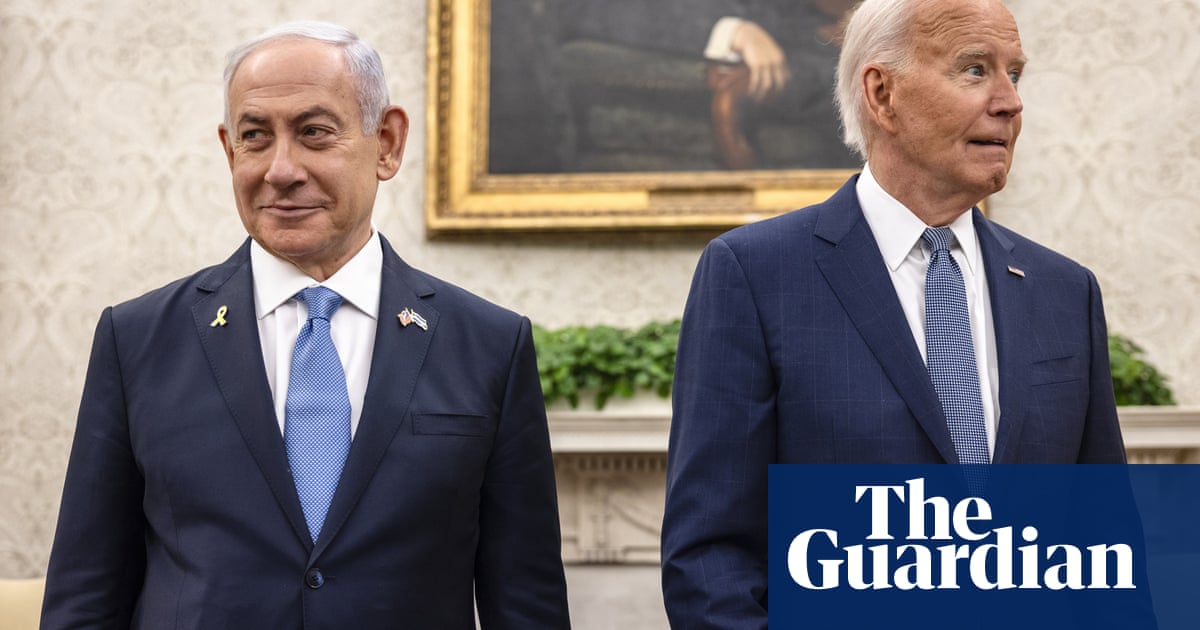Standing alongside Donald Trump in Florida a week ago, Benjamin Netanyahu was vague on the latest prospect of a ceasefire in the war in Gaza.
“I hope we are going to have a deal. Time will tell,” the Israeli prime minister said, two days after his controversial address to a joint session of the US Congress.
Throughout his three-day visit to the US, Netanyahu was careful to avoid making any commitment to the deal Biden unveiled on 31 May. While the US insisted publicly that the onus was on Hamas to accept the plan, the administration knew it also needed to pin down Netanyahu personally over his reluctance to commit to a permanent ceasefire.
Yet, according to US reports, it now appears that at the very time Netanyahu was publicly speculating about a deal, a remote-controlled bomb had already been smuggled into a guesthouse in Tehran, awaiting its intended target: Ismail Haniyeh, the senior Hamas leader who was assassinated on Wednesday night.



The main complaint isn’t so much that Israel is killing enemy leaders; but that it is doing it in a strategically self destructive way.
Bin Laden was a risky move, but the strike was conducted in Pakistan, who was friendly to us; and there are allegations that the Pakistani government gave more of a green light to the operation than they were willing to admit.
Al Zawahiri was in Afghanistan about a year after we left. The Taliban at the time was still occupied in condolidating their power domestically; and their big victory was getting the US to withdraw. They lacked the will and means to start a major war with the US.
Al Bagdhadi was done as part of the Syrian civil war, in direct coordination with the SDF. At the time the operation was planned, the US military was directly involved on the ground in Syria, although our sudden withdrawal prior complicated that.
Israel is dealing with a country that is antagonistic to Isreal, and which has spent decades building up its military capabilities in anticipation of an eventual hot war with Israel. Iran has demonstrated that it has serious political will in avoiding a hot war, however it is just 1 miscalculation away from stumbling into one anyway; and every direct attack Israel makes causes Iran to roll the dice again. Or, at some point Iranian leadership might decide that all Israel’s direct attacks mean they are in a hot war already, an that Iran should respond with full force.
In the case of this particular assassination, I struggle to see what tactical or strategic upside Israel gets to justify the risk. Israel is nominally trying to negotiate with Hamas; but they just killed a senior Hamas member who was involved in those negotiations. Worse, they killed a member who was, within the context of Hamas, a pro peace moderate. Him leaving for completely benign reasons would have been bad for Israel, because his replacement woukd likely be more antagonistic then him. This is 100x worse when he leaves due to a direct and deliberate attack by Israel.
The only way Israel’s actions make sense is if the leadership that has been spending years trying to start a war with Iran is trying to start a war with Iran; and if the leadership that has been spending months sabatoging any potential deal in Gaza wants to sabatoge the potential for a deal in Gaza.